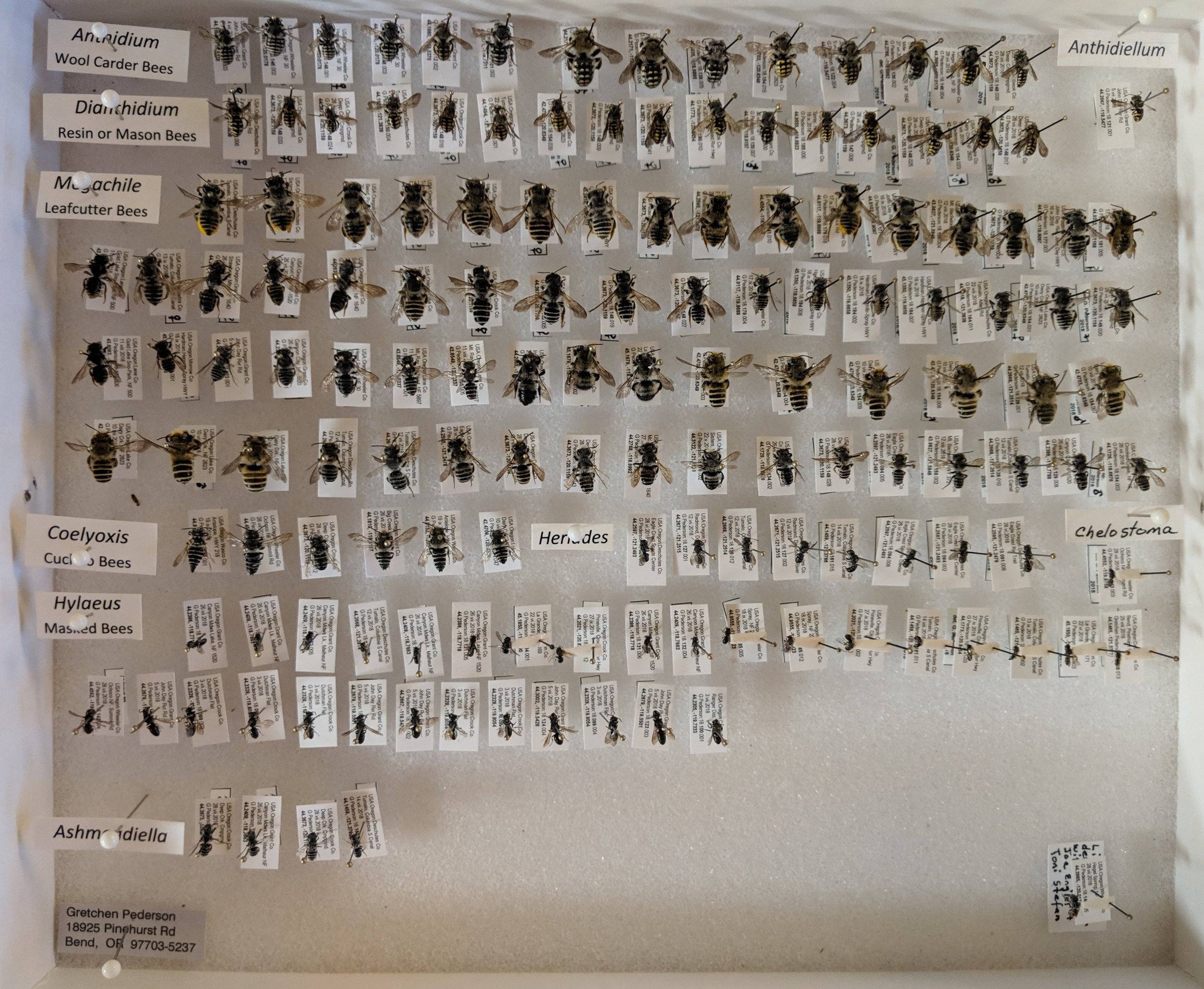1. 2018 NATIVE BEE COLLECTIONS
We have been working hard on getting your bees into a database this fall and we are pleased to report that you all managed to collect over 16,000 new records for the state. What is more, these bees came from right across Oregon. In fact, we managed to not get bees from only three counties - Umatilla, Sherman and Tillamook. We managed to get over 1,000 specimens from five counties, three of which are outside the Willamette Valley. This is a remarkable feat. More details to follow.
2. NEXT STEPS FOR YOUR BEES
All your bees should have location labels on them. If you are missing labels, please email Andony Melathopoulos and he will get a student working on generating your labels in January <Andony.Melathopoulos@oregonstate.edu>. We have been busy correcting labels over the past few months, but if there are still errors, please review the video in the next section on how to resolve outstanding errors.
Labelled bees can be submitted to the Oregon Department of Agriculture at this point for identification. Contact Sarah Kincaid <skincaid@oda.state.or.us> and Jessica K Rendon <jrendon@oda.state.or.us> to arrange to get your collection to ODA. Please expect that not all bees will be determined to species, and that, in some cases, it may be near impossible to get a species identification. We encourage you to get your bees to ODA as soon as possible so we can highlight some of the coolest bees from the Atlas at the Atlas Conference in February.
We do encourage volunteers to try and identify the bees they have collected (to the taxonomic level you feel most comfortable with). We will provide feedback on how your taxonomy and curation of the bees are after we have had a chance to go through your bees.
After ODA provides identifications on the bees, these will be loaded into the database. Bees that are of interest in the state will be deposited in the Oregon State Arthropod Collection. We will return the remain specimens to you, with identifications, allowing you to better identify your bees in the next round.
A great example of how to submit your bees to ODA if you plan to work on identifications (from Gretchen Pederson of the Central Oregon Team). Notice how Gretchen has clearly grouped her bees by the genera? ODA will check these identifications for Gretchen, providing her valuable feedback on her taxonomy skills.
3. GOOGLE DRIVE RESOURCES
We have a Google Drive that contains material that you might need access to during activities working on the Atlas. You can access this drive and all its folders at the following url:
https://drive.google.com/drive/folders/10o3gzUoAji7-BSCMkdZ0h9Lfy94a50Xk?usp=sharing
The drive includes all our taxonomic keys, minutes for the Advisory Committee meetings, the spreadsheets for uploading data (2018 Specimen Database), presentations that you can use and modify when talking with community groups, etc.
Also note, we have all the records from the 2018 Atlas here (Master Database).
https://drive.google.com/drive/folders/1i_Ca1X3EL7qGqBQH2xj1r4YxmSCUtX_A?usp=sharing
Below is a video we circulate last month on how to use this Master Database to correct any errors you still have with your labels.
4. THE ATLAS CONFERENCE (FEB 16) VS PNW POLLINATOR SUMMIT AND CONFERENCE (FEB 14-15)
Oregon State University (main campus, Corvallis) is hosting the first ever Pollinator Summit and Conference (Feb 14-15). The Summit and Conference is not a science conference, but rather an opportunity for a variety of groups from around the region to get together and better coordinate their activity. The even will have inspiring talks by groups doing cool things in the region (including members of the Atlas) followed by time to talk, network and plan. Early registration ends January 12th and we offer a sharp discount for Atlas members.
The Oregon Bee Atlas Conference will take place the next day (February 16, 8:30 am - 4:00 pm). It will start with reports from the Advisory Committee outlining proposals for the 2019 season, an awards ceremony and an afternoon at the microscopes with Sam Droege. This event is free, but we will be sending around a registration doodle to help us plan logistics (e.g., how many slices of pizza to get).




